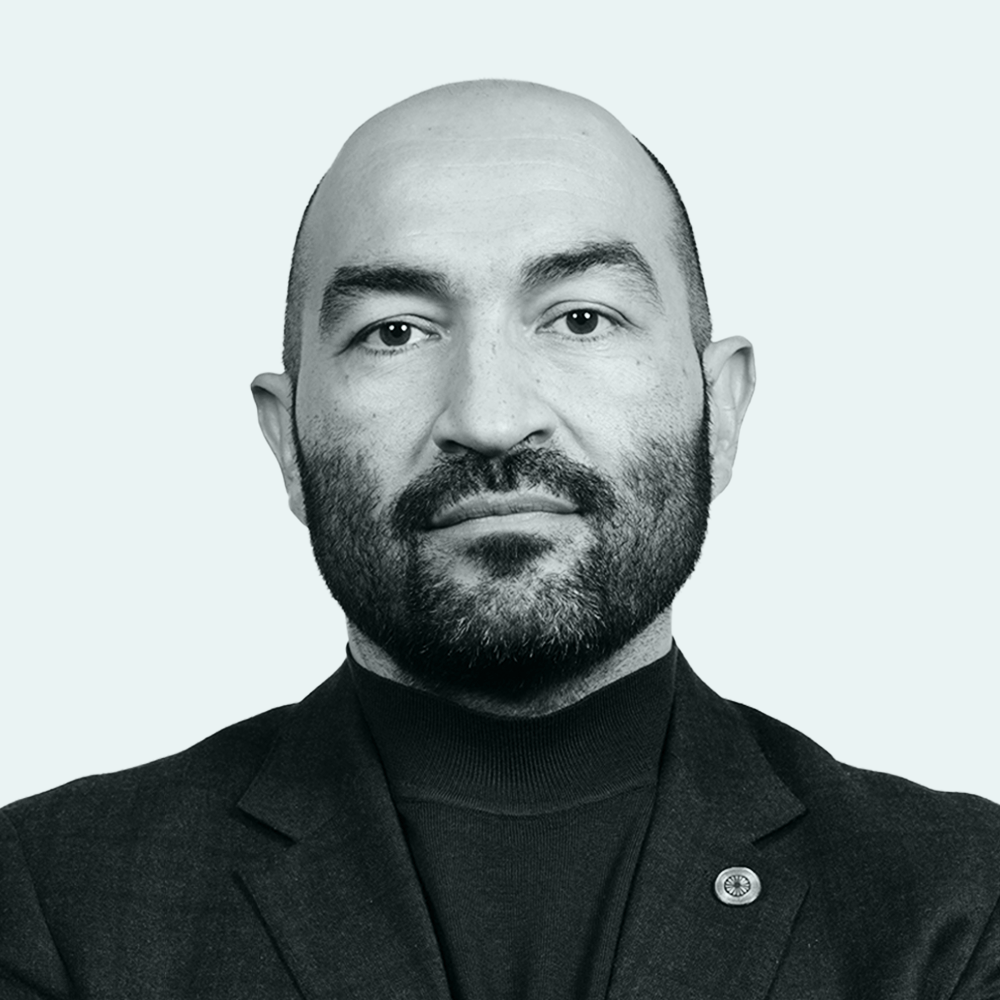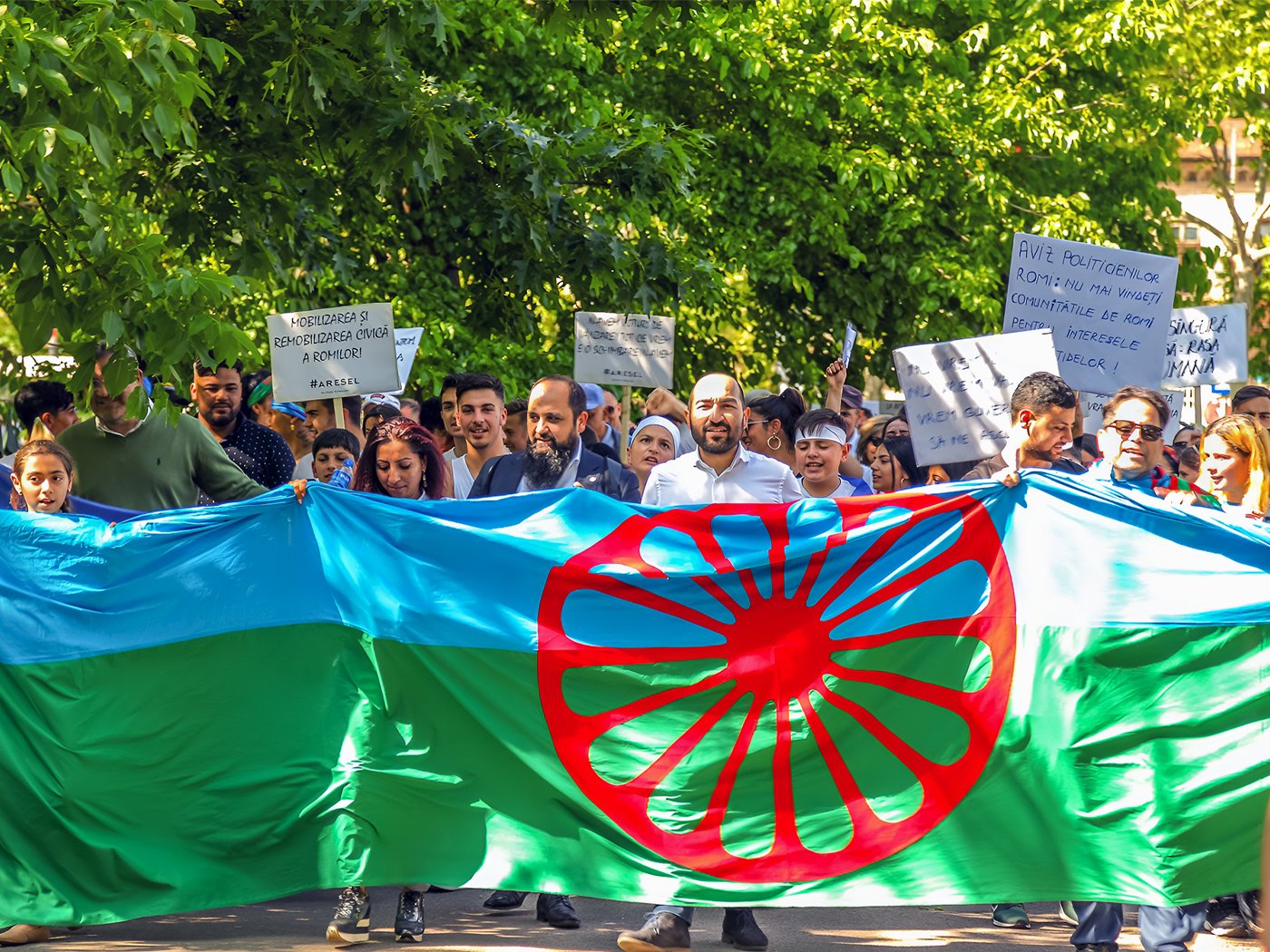The Romani language isn’t just the voice of our people—it’s the voice of Europe. It represents peace, diversity and resilience. If Europe is serious about protecting its heritage and helping its citizens thrive, it cannot ignore Romani.
I was born in Serbia, into a Roma family. Growing up, I remember my father speaking a language that sounded nothing like Serbian. But he didn’t speak it with my mother. He didn’t speak it with me. He only used it with his brother, his parents and his cousins.
As a child, this confused me, and I didn’t know why. It felt like a secret code, a language I could hear but with a sound like no other I knew.
So one day, eager to impress my friends and explain the mystery, I proudly declared, "My father speaks German!" And in that moment, I believed it. I thought that must be the answer.
But later I learned the truth. It was Romani—the language of my people. A language that has carried our stories, our traditions and our identity across generations. A language that makes us a community.
The Roma movement became my teacher
But my father didn’t teach me Romani. My schools didn’t teach me Romani either.
It was the Roma movement that became my Romani teacher. I learned by listening to activists. When I heard them speaking with passion and conviction, familiar words, sounds and phrases from my childhood started coming back to me. I also learned from Romani translators at meetings and conferences. I listened to their voices in parallel to the conference speakers and learned new words that I had not learned in my childhood—words like “government”, “state” and “change”.
The Roma movement helped me understand the unbelievable strength of the Romani language, a language so strong that, even when threatened by rulers and states, it survived for centuries—without schools, without books, without an army of linguists and teachers.
The Roma movement helped me discover how Romani builds a bridge between my family in my hometown and the Roma community across the globe, a bridge between my childhood and Romani history.
I learned the language of power
But as I became more involved in the movement, I learned something even more important: our people suffer injustice and humiliation.
I learned that change for our people depends on those holding power—those making decisions in governments and international organizations. I learned that to make them listen and deliver the change we need, I had to learn their language.
So I studied law. I studied politics, philosophy, economics and English. I had to learn their language to make them listen. To make our voices heard.
In doing so, I found myself living between two worlds. In one, I made progress with the language of power. In the other, my own language—Romani—became a struggle. It stayed deep inside me, warming my heart whenever I heard it in the street, in a shop or on a plane. While I could understand it, though, I couldn’t have deep conversations beyond the basics.
And I realized there are millions of Roma who face the same struggle—no opportunity, no support to learn our language.
That’s how the European Roma Institute for Arts and Culture—ERIAC—was born as an institution led by Roma, for Roma and for the Romani language.
Our language is not one of war or conquest
That’s why I decided to use what I had learned from the language of power to create something for Romani. Something that would protect it and bring it to millions.
I am proud to have helped build this institution, proud that we did it together—with the support of so many Roma advocates and the Council of Europe.
I am proud to see ERIAC delivering Romani language textbooks created by Roma language experts.
But this work didn’t start with us and it isn’t finished.
Because the Romani language isn’t just the voice of our people—it’s the voice of Europe. For ten centuries, Roma have been part of this continent. Our language has never been one of war or conquest. It represents peace, diversity and resilience—the values Europe says it stands for. If Europe is serious about protecting its heritage, it cannot ignore Romani.
But this isn’t just about language. It’s about dignity. It’s about giving every Roma child the chance to learn their language because, when they do, they know who they are. They know where they come from. That gives them pride. It gives them dignity, and with that dignity comes the confidence to dream, to grow and to reach their full potential.
We can make sure Romani lives on
We have an incredible opportunity today. With ERIAC, with many more Romani language experts and teachers than ever before and with new digital technologies.
That’s why, more than ever, each of us has a role to play. Whether it’s teaching our children the language of our ancestors, writing books, training teachers, introducing classes in schools or creating digital content in Romani for AI to use.
We can make sure Romani lives on, is spoken in our homes, taught in our schools and embraced by our children.
We can build a world where Romani is not just a memory, where it’s alive and thriving, where it’s part of who we are, celebrated and spoken with pride by the next generations—as a language of the future.
Adapted from remarks delivered at the “Safeguarding Romani Language” conference in Strasbourg on 5 November 2024

Zeljko Jovanovic
President
The latest

Serbia Must Amend Missing Persons Alert System to Protect Vulnerable Adults

Constitutional Review of the Šutar Law Confirms Serious Rule-of-Law Concerns

Europe’s Growth Depends on Roma Talent
Browse by category
Campaigns
Events
Facts
Press
Voices
For media inquiries:
[email protected]Sign up here so you don’t miss out on campaign updates, upcoming events and other news from the Roma Foundation for Europe and our network.
Sign up for our newsletter